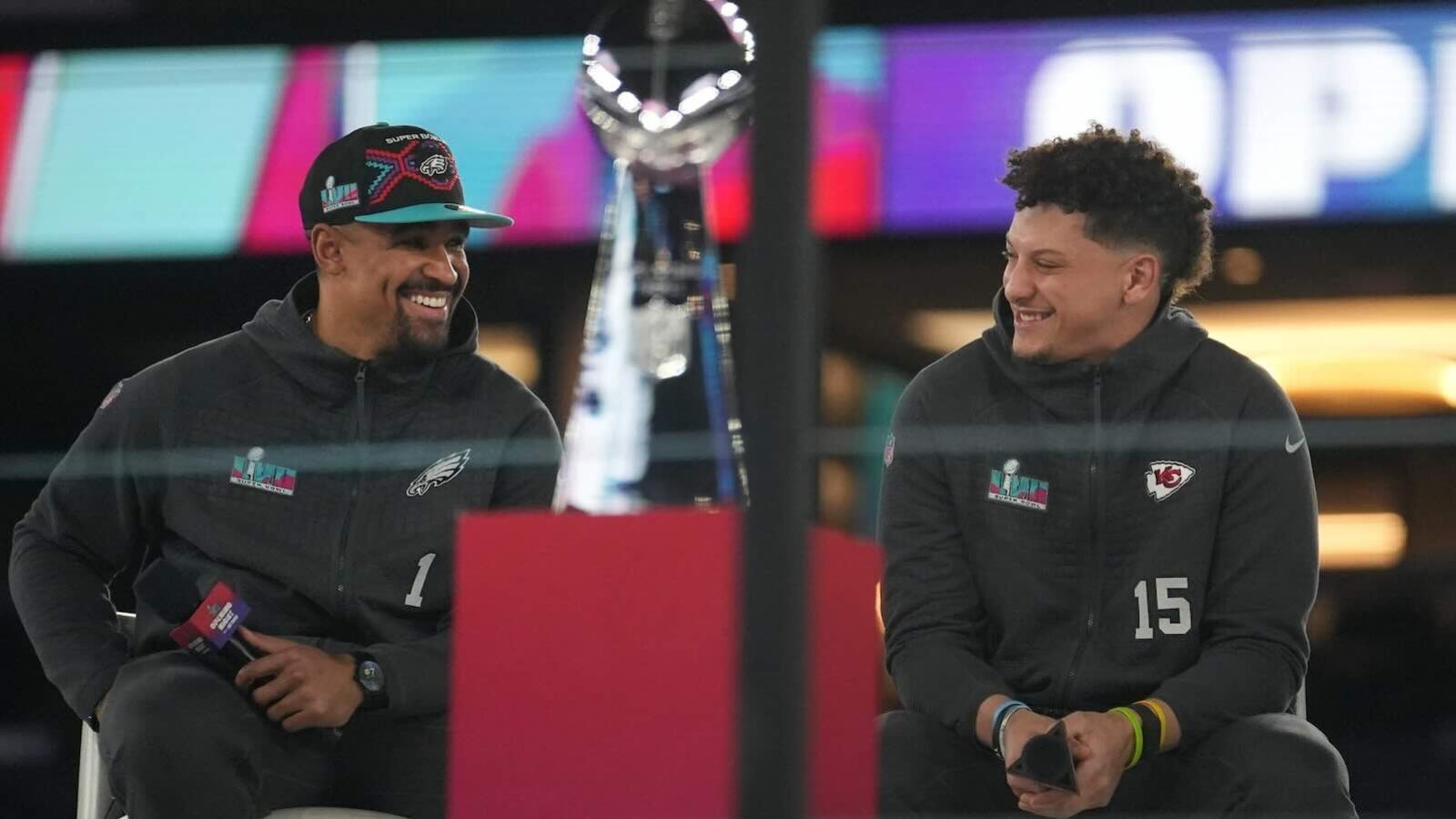Amid Breakneck Pace Of Sports ‘Event Contracts’ Developments Involving CFTC, One Expert Says ‘Tread Lightly’
Upcoming roundtable discussions will shed light on future of Kalshi, Crypto.com, Robinhood
7 min

The recent action around sports-related “events contracts” by Commodity Futures Trading Commission (CFTC)-registered entities is moving at the pace of the current Trump administration, which is to say, at Ludicrous Speed.
It’s difficult to pinpoint where things are headed for Kalshi and Crypto.com, a pair of prediction market platforms where derivatives and contracts based on future events are exchanged. After Kalshi won a key court decision in September 2024 over its right to offer event contracts — or “futures bets,” in sports betting parlance — based on the outcome of elections, the New York City-based company did just that. On Kalshi, users risked $132 million on the 2024 U.S. Presidential race alone and $400 million including races for the Senate, House, and select state-level contests.
Emboldened, Crypto.com in late December ’24 began offering sports contracts beginning with the next Super Bowl winner. Kalshi followed about a month later. The menus for events to predict (or bet on) at both have expanded after their initial rollouts and for Crypto.com now includes NBA contests.
And then in a matter of just one week so far stretching into February came the next wave of “relentless” Kalshi news: reports of Kalshi’s plans to work with brokerages (such as Robinhood) to post and market its event contracts, sports included; news that the CFTC, operating under new leadership, was undertaking a review of Kalshi and Crypto.com’s Super Bowl markets; Robinhood pressing ahead this past Monday and posting Kalshi’s sports markets, though with limited exposure to about 1% of its clientele of 11 million monthly active users; Robinhood reversing course a day later at the formal request of the CFTC and pulling the sports markets; and most recently (for now), the CFTC putting out a charged statement from acting Chairman Caroline D. Pham who decried the agency’s “anti-innovation” approach in previous years, before detailing plans to “break with its past hostility and take a forward-looking approach to the possibilities of the future.”
Next up is a series of public roundtable discussions with a variety of stakeholders, which will occur in approximately 45 days at the conclusion of the CFTC’s requests for information on certain sports-related event contracts.
“While the idea of using the derivatives markets as a forum for ‘event contracts’ is very attractive and supportable, we are currently in an untethered regulatory space, which seems to be why Robinhood Markets withdrew its plans to offer contracts on the Super Bowl,” said Mark Shaffer, a New York-based partner at the law firm Royer Cooper Cohen Braunfeld LLC with over 20 years of experience advising U.S. and foreign financial institutions in a broad range of banking regulation and compliance matters. “This does not seem to be a concession, rather an acknowledgment that there is more work to be done in this space.”
CFTC preparing to talk the talk
Regarding that work to be done, Pham expanded on the scope of those upcoming roundtable discussions and the key issues that the agency will examine:
The CFTC has identified several key obstacles to balanced regulation of prediction markets: existing Commission orders issued to designated contract markets (DCMs) pursuant to regulation 40.11 and related Commission interpretations; Commission rulemakings on event contracts; federal circuit court of appeals and district court orders and opinions, including that “gaming involves games”; the CFTC’s legal arguments and litigating positions in several ongoing federal court cases; CFTC-registered entities’ legal arguments in court that event contracts based on games or sports contests or sporting events constitute “gaming” and are therefore prohibited under the Commodity Exchange Act; staff interpretations, other guidance, and current practices on event contracts; existing law and regulation applicable to DCMs and futures commission merchants (FCMs); CFTC examinations, enforcement actions, and investigations; and other issues including but not limited to Constitutional questions such as the Commerce Clause, States’ rights and State regulatory schemes, Federalism, Federal preemption doctrines, and Tribal sovereignty as well as other federal laws applicable to sports betting.
Don’t underestimate this news cycle, but it does appear for the near-term that the actors involved may now take a breath and begin to prepare for the roundtables.
“My observation would be to tread lightly and wait to see how the new administration shakes out, and to help the administration understand the issue,” said Shaffer. “It appears that the new administration would be more open to new ideas in this space, but the regulatory framework still needs to be fleshed out.”
Among the stakeholders very closely watching how this regulatory framework develops, and likely to participate in the roundtable hearings in some capacity, are members of the regulated sports betting industry such as FanDuel, DraftKings, and Fanatics.
Sportico reported this week that unnamed sportsbook industry executives were collectively shocked when Crypto.com debuted its sports markets in all 50 states in December, and are now uniting around the common competitive threat to the regulated sportsbooks. Kalshi and Crypto.com currently can engage all comers in all states, while the regulated class is limited by, among other things, a maze of state-level laws, licensing, and responsible gambling rules and regulations, and of course they must pay hefty taxes on gross revenue.
If Kalshi gains the ability to re-engage with Robinhood, and similar brokerage partnerships develop, is this an existential threat for gambling companies or a mere nuisance?
“The $64,000 question is to what extent these users overlap with those who have already registered with sportsbooks,” said Evan Davis, a Pennsylvania-based attorney who leads the Gaming & Sports practice at Royer Cooper Cohen Braunfeld LLC and was previously deputy general counsel at Penn Entertainment, Inc. “Obviously, the biggest impact is in states where sports betting isn’t yet legal. Users in those states won’t have a basis for comparison, meaning if they want to legally stake money on the outcome of sporting events, this is their only option. In the remaining states, I think there’s going to be significant overlap, at least demographically, between the existing users of Robinhood (or other similar platforms) and the sports betting operators. But what remains to be seen is how they will market differently, if they can appeal to different sets of customers, and whether restrictions that currently apply to sports betting advertisements will be applied equally to Robinhood or other such platforms.”
Beyond betting operators, U.S. sports leagues have also been monitoring developments in the prediction market space, according to an expert.
“Multiple sports leagues have filed on-the-record statements with the CFTC pertaining to how the federal agency treats athletic-related event contracts,” said Ryan Rodenberg, a professor at Florida State University who has been closely following current litigation involving Kalshi and the CFTC.
“Just last year,” Rodenberg continued, “the NFL filed a two page public comment letter with the CFTC expressing concerns if sports wagering contracts were to be permitted. Also, in 2021, both the NBA and NFL filed letters to the CFTC in response to a different company seeking to offer sports-related futures contracts.”
Small potatoes — so far
So far on Kalshi, users have staked a total $3.5 million on the outcome of Super Bowl LIX between the Kansas City Chiefs and Philadelphia Eagles. This pales in comparison to the AGA-estimated $1.39 billion the regulated sportsbooks are expected to handle on the game across the almost 40 U.S. jurisdictions where sports betting is legal under their respective state laws.
Let’s roughly triple the amount currently staked at Kalshi to $10 million and it’s still not even a hundredth of a percent — but it’s a foot in the door with a combination of people in states where the regulated sportsbooks both can and can’t legally accept wagers.
“I’m sure there’s some consternation, but the products that these prediction markets are offering won’t include all of the ones that sportsbook operators provide,” said Davis. “If anything, this may help the sportsbooks increasingly promote and drive traffic to their parlay options, which is going to further increase their hold percentage. And if we’ve learned anything over the past seven years, it’s that the first-mover advantage in this space is incredibly significant. The major sportsbook operators have brands that are synonymous with sports betting, and that’s not going to meaningfully change anytime soon.”
But we are still at a point where the strength of FanDuel and DraftKings’ first-mover advantage may not be tested at all. At least not without amendment or modification of the Commodities Exchange Act (CEA), which established the statutory framework under which the CFTC operates.
What this whole thing will effectively boil down to is the way that the agency defines the word “gaming” and interprets how the CEA intends to apply a certain regulation that was added in 2011. That regulation §40.11 prohibits:
(1) An agreement, contract, transaction, or swap based upon an excluded commodity, as defined in Section 1a(19)(iv) of the Act, that involves, relates to, or references terrorism, assassination, war, gaming, or an activity that is unlawful under any State or Federal law;
While Pham has shown a receptive ear to Kalshi’s arguments before, dissenting in the company’s favor in May 2024 in the case centered on election-related markets, her dissent also included the following observation:
State regulation of gaming, ranging from betting to lotteries, is long-established in the U.S., and is clearly a power reserved to the States. No one understands their local cultures, economies, and values better than the States, which leads to State laws that have been crafted to reflect the needs of their residents. This approach has allowed some States to embrace gaming and leverage it as a source of revenue and tourism, while others take a more conservative approach.
Moreover, as Pham highlighted when announcing that the current CFTC will “break with its past hostility and take a forward-looking approach to the possibilities of the future,” in the Feb. 5 statement she did also point to an argument that Kalshi made in its previous litigation, which looks like a tough one to navigate:
“Gaming” is often associated with playing games in the casino context. Gaming, Cambridge Dictionary of American English (2d ed. 2008) (“industry in which people gamble by playing cards and other games in casinos”); see also Gaming, American Heritage Dictionary (4th ed. 2009). But it can also describe “a wager upon any game,” such as “a horse race or football match.”
That’s directly from Kalshi’s attorneys, and if they’re going to need to explain at these roundtables how “gaming” does not involve or relate to the outcome of Chiefs vs. Eagles, well it feels at least like needing to convert on 3rd-and-18 — and it’s unclear who is playing quarterback.
“This story isn’t going to be set in stone anytime soon,” Davis said. “If you’re on an extended timetable for entering this space, the world — or at least its regulatory components — may look materially different by the time you get there.”





